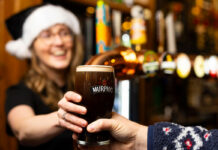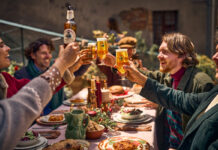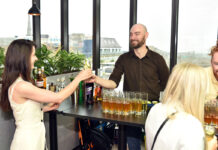A strong range can broaden a bar’s audience and boost sales, say drinks firms
THE on-trade may have evolved over the years, but pubs and bars are still drinks businesses at heart – and the range on offer can be a big pull factor for customers heading out.
That was the message from drinks firms who reckon there are a number of steps publicans can take to build, manage and make the most of their drinks range.

Henry John, senior category and customer marketing manager at William Grant & Sons UK, whose portfolio includes Glenfiddich, Hendrick’s and Sailor Jerry, said there are “three things that make up a strong drinks portfolio”.
Firstly, he advised operators to stock “a selection of spirits that consumers recognise as ‘sign-post’ brands”.Publicans should also remember “the importance of a premium trade up”, John said, adding that although this “may not necessarily be the strongest in terms of rate of sale/volume”, bars should still stock spirits that “give the back-bar credibility and drive engagement”.
Lastly, John advised operators to consider “innovation and providing a point of difference for consumers” when building a drinks portfolio.
“This can be innovation across the category, innovation as a brand and innovation of the serve,” said John.
Martin Dyer of Cellar Trends, which distributes a range of wines, spirits and beers including Italian liqueur Luxardo, Jefferson’s bourbon and Kolson Export, agreed that offering a diverse range of drinks “increases footfall and maximises profit”.
“A broad range also means you will appeal to a greater audience of customers,” said Dyer.
For operators looking to broaden their drinks offer, Dyer said there are currently a number of key drinks trends driving sales in the on-trade.
“Authentic craft or artisan continues to be key, and can be clearly seen in the growth of categories such as gin, that not only tap into craft, but also British cues,” he said.
“We are also seeing interest in low alcohol, skinny cocktails, vegetable cocktails, and fruit cocktails.”
A good drinks range is worth something, but Dyer also suggested publicans could extract even more value from their bar by ensuring they bring staff up to speed.
“Bartender recommendation is very important to the consumer,” he said.
“So being knowledgeable about your portfolio is vital in driving sales and volume.
“We invest time in staff training, offering masterclasses, suggested serves and cocktail solutions.”
Andrew Turner, category and trade marketing director for the on-trade at Heineken, whose portfolio of beers includes Foster’s, Kronenbourg 1664 and Desperados, agreed that well-educated staff should be a priority for publicans.
“We work closely with our customers to ensure staff are trained in serving and merchandising techniques to help them maximise sales,” said Turner.
“Our training programme covers the art of pouring the perfect serve to ensure consumers get a quality experience to accompany their purchase, as well as offering licensees advice on how to capitalise on their drinks offering.”
Communication shouldn’t be limited to bartender and pub customer either, suggested Turner, who highlighted the importance of a strong relationship between the drinks industry and the on-trade.
“We believe it’s important to speak to both consumers and customers to understand their needs, and work to develop new products, marketing campaigns, technology and training programmes to deliver against these,” he added.
“We are confident that by doing this we can continue to drive growth in the category, building momentum for our leading brands as well as helping licensees drive footfall and sales.”























